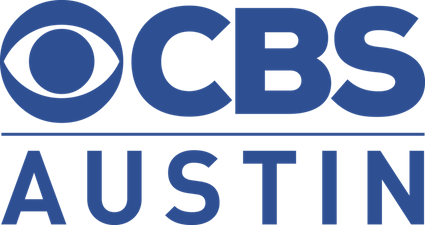
By Adam Andrzejewski
CEO and founder of OpenTheBooks.com
Local governments and municipalities are spending taxpayer dollars to work (lobby) against taxpayer interests. In 2017, Texas taxpayers funded $41 million of lobbying costs, and the most recent data shows that number has almost doubled to $75 million.
Taxpayers are bankrolling lobbyists to advocate against their interests, while increasing the support for more government spending and higher taxes.
In 2020, the City of Austin defended its taxpayer funded lobbying expenditures that were somewhere between $435,000 - $824,000 according to state ethics reports, on lobbying services with 5 firms.
With Senate Bill 175 and House Bill 3835, Texas could be the first state in the nation to ban the practice of using tax dollars for cities and municipalities to hire lobbyists.
- What OpentheBooks has learned about Austin’s lobbying efforts. What did you find?
- AUSTIN 2020 LOBBYING SPEND: $435,000-$875,000.
- LUCRATIVE EXECUTIVE PAY: Jacqueline Ann Sargeant, the GM of the electric utility salary was $423,858 – the top among all Austin city employees. Spencer Cronk, a city manager made $380,393.
- LACK OF TRANSPARENCY IN THE LOBBYING INDUSTRY: Without real accountability tied to lobbying dollars the opportunity for impropriety is high.
- What does the data from the Texas Ethics Commission show about local government spending on lobbying?
- We know that the $75 million number is low because there are other entities that cities, towns, and municipalities use to shore up lobbying efforts:
- In-house lobbyists known as “intergovernmental relations personnel” and pro-government associations such as the Texas Municipal League and the Texas Association of Counties and the Texas Association of School Boards, among others.
- The University of Texas and the Texas Tribune did a study and found that 69% of Democrats, Republicans, and Independents support a ban on taxpayer-funded lobbying. The Texas Public Policy Foundation found in a 2019 poll that almost 90% of those surveyed supported the ban.
- Give examples of the city of Austin’s local lobbying efforts?
- Typically, local lobbying efforts of cities and towns is geared toward more spending, regulatory authority, and larger government.
- Austin’s 2023 legislative priorities include:
- Opposing spending limits
- Fighting against reasonable tax restraints
- Thwarting debt transparency which is a big issue for OpentheBooks.com
- Promoting corporate welfare
- And Equity
- Breakdown the “Equity" Lobbying:
- The City of Austin’s 2023 State Legislative Agenda for the 88th Legislative Session includes a host of “equity and affordability”:
EQUITY & AFFORDABILITY
- Support legislation that promotes equity for residents of Austin including pay-equity, education-equity, housingequity, and health-equity.
- Support legislation and funding that will bolster the City’s efforts to stabilize and sustain neighborhoods, preserve and expand the supply of housing that is affordable, expand economic opportunities, meet critical social needs, and fund other critical needs in low- and moderate-income neighborhoods.
- Support legislation that allows cities to implement mandatory inclusionary zoning programs.
- Support legislation that prohibits predatory practices that pressure families to sell their homes.
- Support legislation and funding that aligns employment, education, healthcare, and other essential services to housing that is affordable and accessible to transit.
- Support legislation that affirms civil and human rights, and ensures that those targeted
- What is the easy reform here?
- Citizens to be engaged and know exactly what is going on at their local and state level.
- Senate Bill 175 and House Bill 3835 if passed would prohibit local governments and political subdivisions in Texas from using taxpayer funds to hire lobbyists.
- These bills would also ban cities, towns, counties and other political subdivisions from paying due to nonprofit organizations that represent political subdivisions or hire contract lobbyists.
- With all the BIG Salaries that Austin City Executives are making, doesn’t it make sense that working with the Texas Legislature should be part of their responsibility? That would return that $435,000 - $875,000 in lobbying money back to the city.